Disclaimer: The opinions expressed here are that of the writer and do not necessarily represent the views of the Union for Traditional Judaism, unless otherwise indicated.

by Rabbi Noah Gradofsky
May One Take Tefillin Home on Shabbat if One Accidentally Brought Them to Shul?[1]
Tevet 5785

by Rabbi Wayne Allen
Question: Is it permitted for a kosher-observant Jew to eat in a vegetarian restaurant?
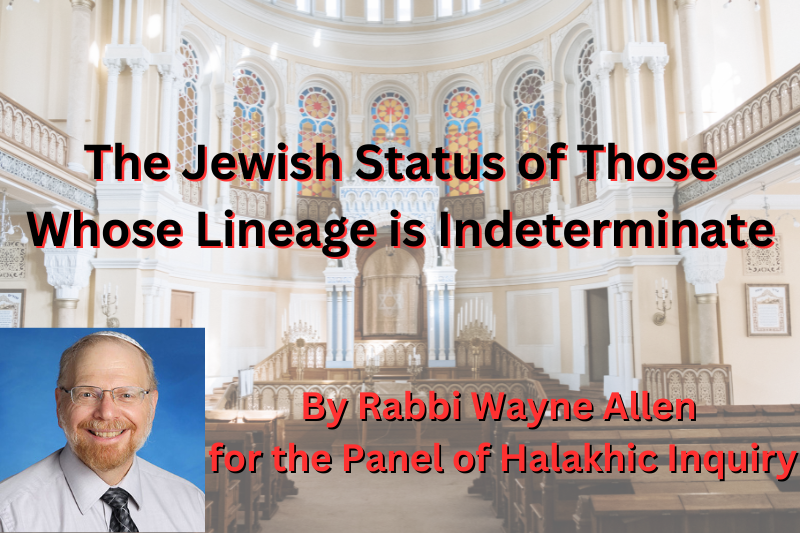
by Rabbi Wayne Allen
Question: A couple contemplating a proper Jewish marriage has approached a traditional rabbi to determine whether or not some special procedure might be necessary for them to undergo before huppah and kiddushin in that their familial heritage is likely Jewish, but not definitively so. Would a pro forma conversion be appropriate in this circumstance in order to dispel any concerns about their status?
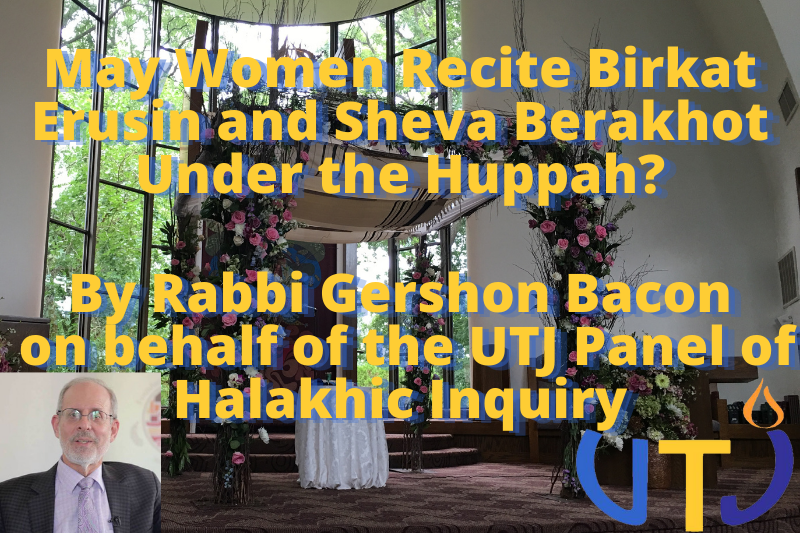
by Rabbi Gershon Bacon
A congregational rabbi asks: may women recite Birkat Erusin (betrothal blessings) and the Sheva Berakhot (wedding blessings) under the Huppah? The case in question involves a couple who are not members of his congregation, but are making use of the congregation’s facilities, and who want their own (female) rabbi to perform the ceremony and to have women recite some of the seven blessings. The rabbi submitting the question included reports of his discussions with colleagues and his own research, some of whom argued that women’s participation would be permissible according to halakha. The rabbi, however, still wondered if this was so, citing a position paper authored four decades ago by our honored teacher, Rabbi Prof. David Weiss Halivni, who ruled that women could not perform these functions, since they fell under the rubric of devarim she’be’kedusha (matters of holiness), requiring a minyan, and the person reciting them would be considered a shaliah tzibbur (emissary of the congregation).
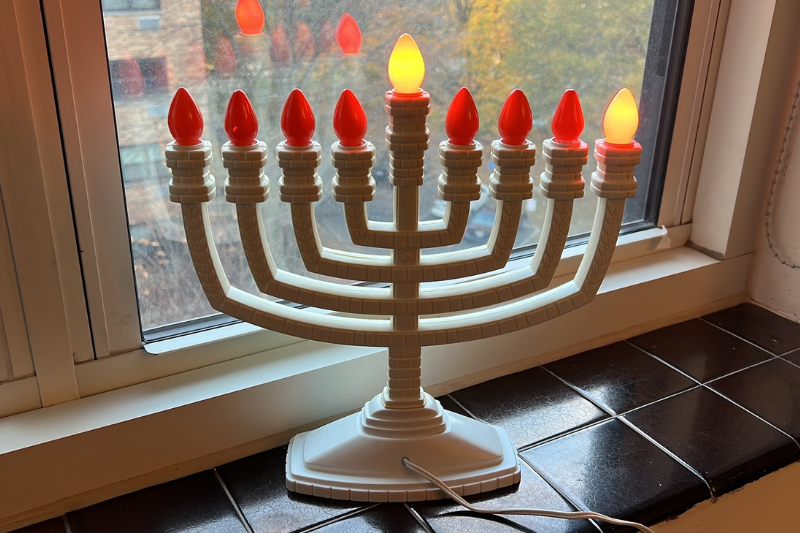
by Rabbi Shlomo Segal
May an electric menorah be used to fulfil one’s obligation to light the Chanukkah menorah?
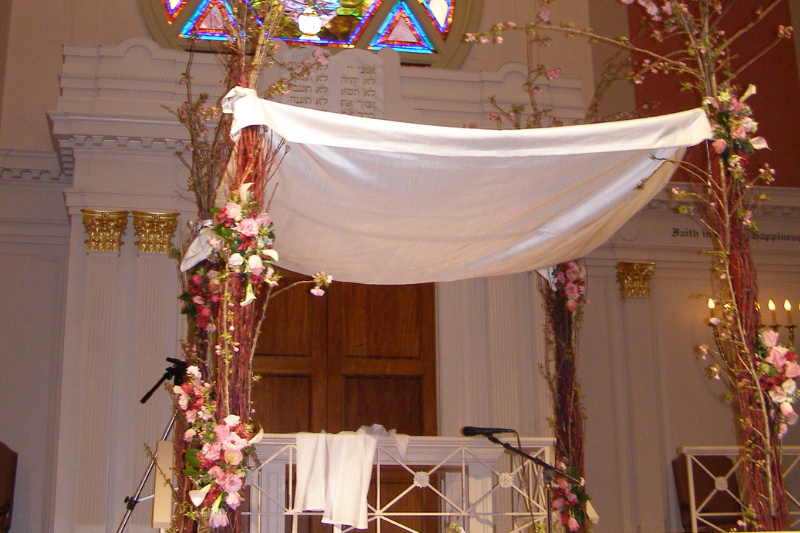
by Rabbi David Novak
Rabbi Robert Pilavin reports that he had recently officiated at a wedding where the bride and the groom requested beforehand that grape juice be used in the ceremony instead of wine. Apparently, neither one of them could tolerate wine. Minutes before the ceremony was to begin, the rabbi became aware that the caterer had provided sparkling apple cider instead. He pondered that his halakhic options as mesader kiddushin were as follows: (1) If the rabbi as celebrant did find wine, should he alone drink the wine after reciting borē pri ha-gefen and birkat eirusin, and then again after reciting borē pri ha-gefen and birkhot nisu’in? Or (2) should he recite she-ha-kol on the apple cider and then pass the cup to the bride and groom to drink from it, which is what he would do were the drink either wine or grape juice? Or (3) should he forego the cup altogether and directly recite birkat eirusin before the groom betroths the bride with a ring, and then after the reading of the ketubah directly reciting birkhot nisuin?

by Rabbi Alan J Yuter
Our shul’s Shabbat shaharit minyan now meets outdoors with almost everybody relying on the Jerusalem ‘eruv in order to bring one’s siddur and tallit to the synagogue.
The synagogue building is under construction and, as such, is classified as a danger zone. It is not possible to leave tallitot or siddurim on the premises.
Since the positive command overrides the negative command, e.g. the positive command to perform the berit mila/circumcision wound overrides the prohibition of wounding on Shabbat, would the need of the moment caused by the Covid19 pandemic provide grounds for leniency to rely on the ‘eruv endorsed by the Jerusalem rabbinate?
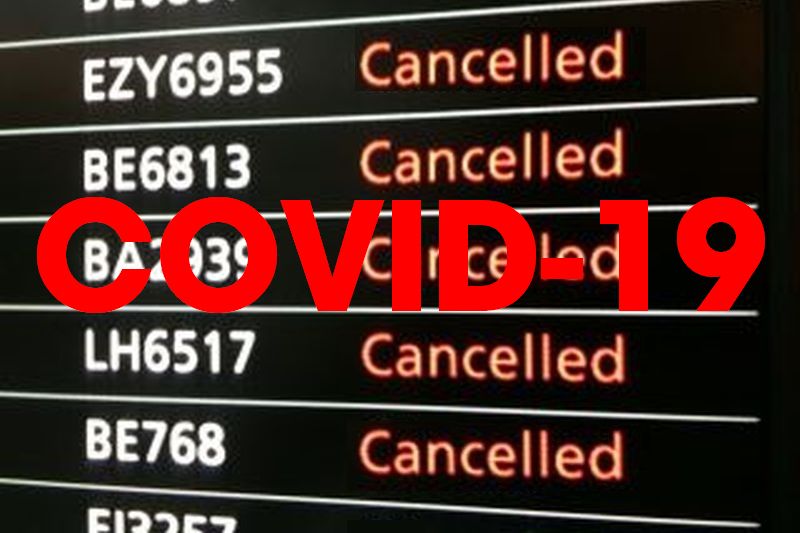
by Rabbi David Novak
A friend recently asked me about the refusal of an airline to refund the money she paid for a flight she couldn’t take, which was because the event she had planned to attend had been cancelled due to the Covid-19 pandemic. In fact, since the flight was to go from Canada to the United States, the flight itself was cancelled due to the border between the two countries having been closed to traffic.
The airline claimed that this cancellation was because of the pandemic, which is an event they couldn’t have ever foreseen that it would ever occur. Therefore, they couldn’t have reasonably made provisions for its occurrence. They explained that for events they could probably anticipate and make provisions for its occurrence, provisions have been made, such as offering a refund for the fare the traveler already paid in advance, or offering the traveler a voucher for a future flight with that airline. My friend plans to sue the airline, most likely as part of a class action suit. Nevertheless, she asked me how her case might be decided according to Halakhah.

by Rabbi Noah Gradofsky
During the Coronavirus epidemic, may one wear a mask on Shabbat where there is no eruv?

by Rabbi David Novak
A man in Miami Beach, Florida, asks if paddle boarding is permitted on Yom Tov. He indicates that this paddle boarding would be done close to the shore of the bay in Miami Beach. As such, this would involve no possible violation of travelling beyond the geographic limits (tehum) the Rabbis proscribed on travel beyond during Shabbat or Yom Tov (Eruvin 51b re Exod. 16:29; also, for whether the tehum is a scriptural decree or a rabbinic decree, see Shabbat 34a and Rashi: “be`eruvei tehumin;” Tosafot: “la kashya.”) Moreover, the questioner also asked whether paddle boarding could be compared to bicycling, which at least one modern posek permitted on Yom Tov.

by Rabbi Alan J Yuter
In response to the devastating Coronavirus pandemic, Israel’s government has outlawed public gatherings in order to reduce the spread of a contagion that is particularly lethal for the elderly and those with compromised immunity systems. In spite of the mandatory lockdown, there have been numerous instances of non-compliance with the government’s directives. In a south Jerusalem apartment building, a ground floor apartment was converted into a Chabad shteiblel which continued to convene on holy days after the Israeli government outlawed these public gatherings. Some members of a gated Israeli Orthodox community that complied with the governmental order discovered to their chagrin that rogue minyanim, prayer quorums of ten adult men, were convening within the community, in violation of the governmental order.
On one hand, minyan attendance is a worthy and legitimate Halakhic mandate, but so is the obligation to preserve health and life. The relative weights of these two occasionally conflicting concerns requires clarification. Furthermore, there is a prohibition against mesira, of delivering and informing on a Jew to the secular authorities. Does this prohibition apply to those who join minyanim in violation of the law? To whom should Halakhically committed people turn for relief from those who ignore the lockdown directives?

by Rabbi David Novak
Reading your responsum “Inviting a Non-Jew to the Passover Seder,” I was struck by your comment that “according to an important strand of Jewish eschatology” “the whole world will have become Jewish” in the age of Meshiach. I have never heard this before. Can you recommend further reading about this idea?
Enjoying UTJ Viewpoints?
UTJ relies on your support to promote an open-minded approach to Torah rooted in classical sources and informed by modern scholarship. Please consider making a generous donation to support our efforts.

















